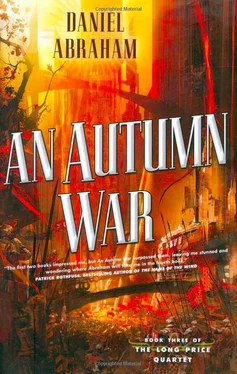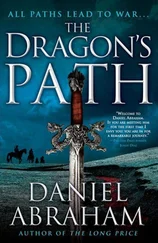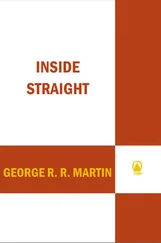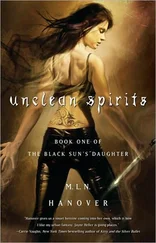Daniel Abraham - Autumn War
Здесь есть возможность читать онлайн «Daniel Abraham - Autumn War» весь текст электронной книги совершенно бесплатно (целиком полную версию без сокращений). В некоторых случаях можно слушать аудио, скачать через торрент в формате fb2 и присутствует краткое содержание. Жанр: Фэнтези, на английском языке. Описание произведения, (предисловие) а так же отзывы посетителей доступны на портале библиотеки ЛибКат.
- Название:Autumn War
- Автор:
- Жанр:
- Год:неизвестен
- ISBN:нет данных
- Рейтинг книги:4 / 5. Голосов: 1
-
Избранное:Добавить в избранное
- Отзывы:
-
Ваша оценка:
- 80
- 1
- 2
- 3
- 4
- 5
Autumn War: краткое содержание, описание и аннотация
Предлагаем к чтению аннотацию, описание, краткое содержание или предисловие (зависит от того, что написал сам автор книги «Autumn War»). Если вы не нашли необходимую информацию о книге — напишите в комментариях, мы постараемся отыскать её.
Autumn War — читать онлайн бесплатно полную книгу (весь текст) целиком
Ниже представлен текст книги, разбитый по страницам. Система сохранения места последней прочитанной страницы, позволяет с удобством читать онлайн бесплатно книгу «Autumn War», без необходимости каждый раз заново искать на чём Вы остановились. Поставьте закладку, и сможете в любой момент перейти на страницу, на которой закончили чтение.
Интервал:
Закладка:
The Galts had fallen hack, their steam wagons and horses making a fast march to the east, toward the village of the Dal-kvo. "There was no pursuit, no rush to find the survivors of that bloody field and finish the work they'd begun. Otah's army had been broken easily, and the Galts' contempt for them was evident in the decision that they were not worth taking the time to kill.
It was humiliating, and still Otah had found himself relieved. More of his men would die today, but only from wounds they already bore. They had given Otah a moment to rest and consider and see how deep the damage had gone.
Four hundred of his men lay dead in the mud and grass beside perhaps a third as many Galts, perhaps less. Another half thousand were wounded or missing. A few hours had cost him a third of what he had, and more than that. The men who had survived the retreat were different from the ones he had spoken to at their cook fires before the fight. 'T'hese men seemed stunned, lost, and emptied. The makeshift spears and armor that had once seemed to speak of strength and resourcefulness now seemed painfully naive. 'T'hey had come to battle armed like children and they had been killed by men. Otah found himself giving thanks to any gods that would listen for all the ones who had lived.
The scouting party left two days later. It was made of twenty horsemen and as many on foot, Otah himself at the lead. Nayiit asked permission to come, and Otah had granted it. It might not have been keeping the boy safe the way he'd promised Nlaati, but as long as Nayiit blamed himself for the carnage and defeat, it was better that he be away from the wounded and the dying. The rest of the army would stay behind in the camp, tend to the men who could be helped, ease the passing of those past hope, and, Otah guessed, slip away one by one or else in groups. He couldn't think they would follow him into battle again.
The smaller group moved faster, and the path the Galts had left was clear as a new-built road. (, burned grass, broken saplings, the damage done by thousands of disciplined feet. The wounded earth was as wide as ten men across-never more, never less. The precision was eerie. It was two days' travel before Otah saw the smoke.
They reached the village near evening. They found a ruin. Where glittering windows had been, ragged holes remained. The towers and garrets cut from the stone of the mountain were soot-stained and broken. ' 'he air smelled of burned flesh and smoke and the copper scent of spilled blood. Otah rode slowly, the clack of his mount's hooves on pavement giving order to the idiot, tuneless wind chimes. The air felt thick against his face, and the place where his heart had once been seemed to gape empty. His hands didn't tremble, he did not weep. IIis mind simply took in the details-a corpse in the street wearing brown robes made black with blood, a Galtic steam wagon with the wide metalwork on the back twisted open by some terrible force, a firekeeper's kiln overturned and ashen, an arrow splintered against stoneand then forgot them. It was unreal.
Behind him, the others followed in silence. 't'hey made their way to the grand office at the height of the village. The great hall, open to the west, caught the light of the setting sun. The white stone of the walls glowed, light where it had escaped the worst damage and a deeper, darker gold where smoke had marked it.
And in the entrance of the hall, the Dai-kvo was tied to a stake. The hopes of the Khaiem lying dead at his feet.
I could have stopped this, Otah thought. The Galts live because I spared them at Saraykeht. This is my fault.
He turned to Nayiit.
"Have him cut down," he said. "We can have them buried or burned. Anything but this."
Behind the gruesome sight squatted the remains of a great pyre. Logs as tall as a standing man had been hauled here and set to hold the flames, and had burned nearly through. The spines of ancient hooks lay stripped in the ashes of their pages and curled from the heat. Shredded ribbons that had held the codices closed shifted in the breeze. Otah touched his palm to the neck of his horse as if to steady it more than himself, then dismounted.
Smoke still rose from the fire, thin gray reeking clouds. He paced the length and breadth of the pyre. Here and there, embers still glowed. He saw more than one bone laid bare and black. Men had died here. Poets and books. Knowledge that could never be replaced. He leaned against the rough bark of a half-burned tree. There had been no battle here. This had been slaughter.
"Most High?"
Ashua Radaani was at his side. Might have been at his side for some time, for all Otah could say. The man's face was drawn, his eyes flat.
"We've taken down the Dai-kvo," he said.
"Five groups of four men," Otah said. "If you can find any lanterns still intact, use them. If not, we'll make torches from something. I can't say how deep into the mountain these hallways go, but we'll walk through the whole thing if we have to."
Radaani glanced over his shoulder at the red and swollen sun that was just now touching the horizon. The others were silhouetted against it, standing in a clot at the mouth of the hall. Radaani turned back and took a pose that suggested an alternative.
"Perhaps we might wait until morning-"
"What if there's a man still alive in there," Otah said. "Will he he alive when the sun's back? If darkness is what we have to work in, we'll work in darkness. Anyone who survived this, I want him. And hooks. Anything. If it's written, bring it to me. Bring it here."
Radaani hesitated, then fell into a pose of acceptance. Otah put his hand on the man's shoulder.
We've failed, he thought. Of course we failed. We never had a chance.
They didn't make camp, didn't cook food. The horses, nervous from the scent of death all around them, were taken hack from the village. Nayiit and his blacksmith friend Saya gleaned lanterns and torches from the wreckage. The long, terrible night began. In the flickering light, the hack halls and grand, destroyed chambers danced like things from children's stories of the deepest hells. Otah and the three men with him-Nayiit, Radaani, and a thin-faced boy whose name escaped him-called out into the darkness that they were friends. That help had arrived. Their voices grew hoarse, and only echoes answered them.
They found the dead. In the beds, in the stripped libraries, in the kitchens and alleyways, and floating facedown in the wide wooden tubs of the bathhouse. No man had been spared. "There had been no survivors. Twice Otah thought he saw a flicker of recognition in Nayiit's eyes when they found a man lying pale and bloodless, eyes closed as if in sleep. In a meeting chamber near what Otah guessed had been the Dai-kvo's private apartments, Otah found the corpse of Athai-kvo, the messenger who had come in the long-forgotten spring to warn him against training men to fight. His eyes had been gouged away. Otah found himself too numb to react. Another detail to come into his mind and leave it again. As the night's chill stole into him, Otah's fingers began to ache, his shoulders and neck growing tight as if the pain could take the place of warmth.
They fell into their rhythm of walking and shouting and not being answered until time lost its meaning. They might have been working for half a hand, they might have been working for a sunless week, and so the dawn surprised him.
One of the other searching parties had quit earlier. Someone had found a firekeeper's kiln and stoked it, and the rich smell of cracked wheat and flaxseed and fresh honey cut through the smoke and death like a sung melody above a street fight. Otah sat on an abandoned cart and cradled a bowl of the sweet gruel in his hands, the heat from the bowl soothing his palms and fingers. He didn't remember the last time he'd eaten, and though he was bone-weary, he could not bring himself to think of sleep. He feared his dreams.
Читать дальшеИнтервал:
Закладка:
Похожие книги на «Autumn War»
Представляем Вашему вниманию похожие книги на «Autumn War» списком для выбора. Мы отобрали схожую по названию и смыслу литературу в надежде предоставить читателям больше вариантов отыскать новые, интересные, ещё непрочитанные произведения.
Обсуждение, отзывы о книге «Autumn War» и просто собственные мнения читателей. Оставьте ваши комментарии, напишите, что Вы думаете о произведении, его смысле или главных героях. Укажите что конкретно понравилось, а что нет, и почему Вы так считаете.










